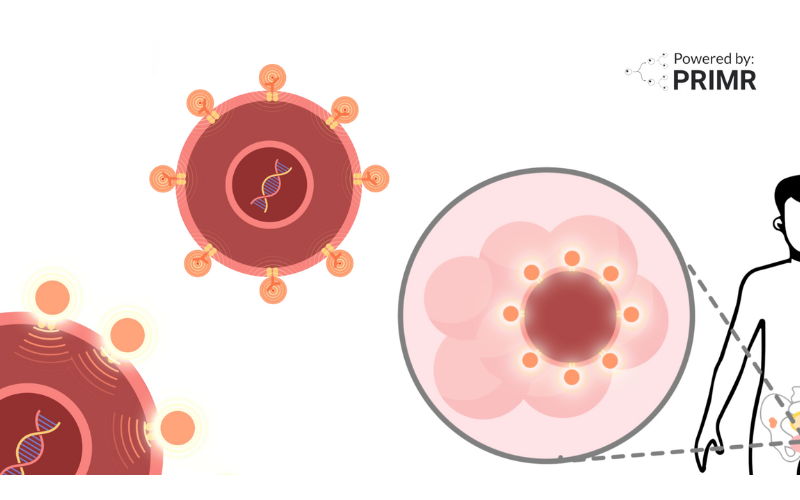The Importance of Randomization in Clinical Trials

By: David Grew MD MPH
"Randomization ensures that any differences in results are due to the treatment itself and not external factors."
∗ ∗ ∗
I remember as a pre-med in college, and later as I entered public health and medical school, have a vague sense of the idea of randomization in clinical trials. But it wasn’t until I participated in research as a subject that I came to fully appreciate the process. I enrolled as a healthy volunteer in a double blinded randomized trial with injections of erythropoietin or saline. I could not choose which I received. Neither the study leaders, nor I knew which treatment I had.
At the time, I was doing a lot of jogging. Erythropoietin is known to boost exercise performance, and during the study I definitely felt like I was running with a tail wind! But was that the effect of erythropoietin? Or was it just a placebo effect from a perceived benefit when I was in fact just getting salt water injections? Randomization and blinding helps eliminate bias and improves the quality of data from clinical trials like the one I did back in grad school. Let’s dive in:
What is randomization and why is it used?
Randomization is the process of assigning participants to different groups in a clinical trial by chance rather than by choice. Each participant has an equal opportunity to be placed in a treatment group or a control group. This approach ensures that both groups are similar in terms of characteristics like age, gender, or underlying health conditions, making the results more reliable.
The primary reason for using randomization is to eliminate bias. If researchers or participants were allowed to choose their groups, there could be unintended influences on the study’s outcomes. Randomization ensures that any differences in results are due to the treatment itself and not external factors.
How does randomization work?
Clinical trials use different methods to randomize participants. In most cases, computer programs or automated systems assign participants to groups, preventing human influence from affecting the results. This is especially important in double-blinded studies, where neither the patient nor the researcher knows who is receiving which treatment. This helps ensure objectivity.
In some studies, researchers use stratified randomization, which balances participants based on key characteristics, such as disease severity or age, before assigning them to groups. This extra step improves the study’s reliability by ensuring that specific factors do not skew the results.
Why is randomization important?
Randomization is fundamental to the success of clinical trials for several reasons:
- Fair Comparison. By ensuring that groups are similar, researchers can fairly compare the effects of the treatment without interference from outside variables.
- Reduced Bias. Randomization removes any unconscious influence from researchers or participants, making the study results more objective.
- Better Generalizability. Since randomized groups better represent the broader population, the study results are more applicable to real-world patient care.
Key Information for Trial Participants
For those considering participation in a randomized clinical trial, it is natural to have questions about how the process works and what it means for your care. One of the most important things to understand is that randomization does not, in any way, impact the quality of care you receive. Regardless of whether you are placed in the treatment group or the control group, you will continue to receive the highest standard of medical care appropriate for your condition. Clinical trials are designed with patient safety as a top priority, ensuring that all participants are monitored closely and provided with the best possible care throughout the study.
It is also essential to recognize that randomization is a carefully controlled process conducted to maintain the integrity of the study. If you have concerns about how participants are assigned to different groups or what this means for your treatment, the research team is available to provide clarity and address any questions you may have. Open communication between participants and researchers is encouraged, as understanding the process can help alleviate uncertainties and promote confidence in the trial.
Participating in a clinical trial is an important decision, and being well-informed about how randomization works can make the experience more reassuring. If at any point you feel uncertain about your role in the study or the methodology being used, do not hesitate to reach out to the research team. They are there to guide you, provide support, and ensure that you fully understand the significance of your contribution to advancing medical science.
–
Randomization is a cornerstone of clinical research, ensuring that studies are conducted fairly and produce results we can trust. By understanding this process, patients can feel more confident in their role in advancing medical science.
If you’re considering a clinical trial, take the time to ask questions and fully understand how randomization helps bring new and effective treatments to patients.
For more detailed information on randomization and its importance in clinical research, watch the video we created here.
Hire PRIMR to create custom video content for your clinical trial or medical product today.
FAQs:
What happens if a patient’s condition worsens while participating in a randomized trial?
If a participant's health declines, clinical trials have strict protocols in place to ensure patient safety. Researchers and medical teams continuously monitor participants, and if a treatment is not working or causing severe side effects, patients may be withdrawn from the study and provided with the best available standard care. In some cases, trials include "rescue therapy," allowing patients in the control group to receive the investigational treatment if their condition worsens. Ethical guidelines require that trials prioritize patient well-being, and independent data monitoring committees oversee safety assessments to prevent harm.
How do researchers address concerns about patients being randomly assigned a placebo instead of an active treatment?
In many clinical trials, particularly those studying life-threatening conditions, placebos are only used if there is no proven effective treatment available. If a standard treatment exists, trials often compare a new therapy against that treatment rather than a placebo. In some cases, patients in the control group receive the best available therapy plus a placebo to ensure they are not left untreated. Ethics committees and regulatory bodies oversee the design of placebo-controlled trials to ensure that they are justified and that participants are not exposed to unnecessary risks.
Can participants request to switch groups after being randomized?
Once a participant is assigned to a group, switching is typically not allowed because it would compromise the study’s validity. However, patients always have the right to withdraw from a trial at any time if they are uncomfortable with their assigned treatment. In some adaptive trial designs, adjustments can be made based on early findings, such as increasing the likelihood of receiving a promising treatment. Researchers strive to keep participants informed and supported throughout the trial to ensure they feel comfortable with their role in the study.
Other Posts

Nuclear Medicine: PSMA Treatment Explained from a Doctor’s Perspective

Nuclear Medicine: PSMA Imaging and Its Impact on Prostate Cancer Care
